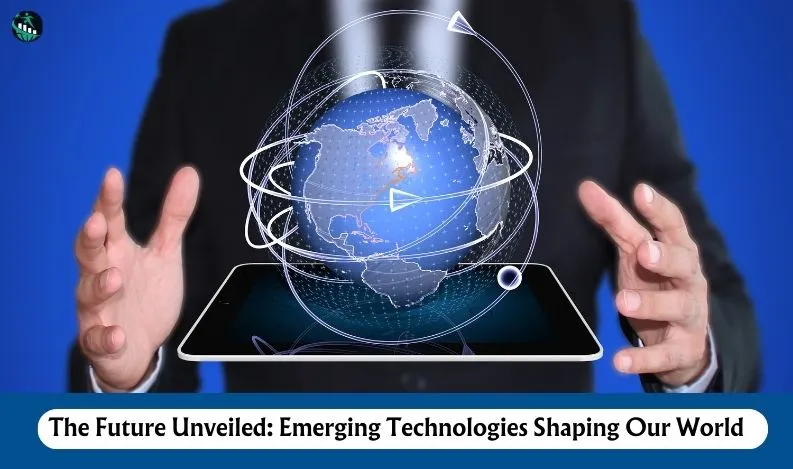
The Future Unveiled: Emerging Technologies Shaping Our World
In the grand tapestry of human achievement, the thread of technological advancement weaves a narrative of relentless pursuit and boundless curiosity. As we stand on the brink of a new era, emerging technologies beckon us towards a horizon rich with potential. This journey into the future, powered by the engines of artificial intelligence, robotics, quantum computing, and biotechnology, promises to redefine the essence of human existence. Yet, as we forge ahead, we are reminded of the dual nature of progress, bearing both the seeds of solution and the roots of new challenges. This blog post delves into the heart of these technologies, exploring their transformative impact on our world and the ethical considerations they bring to the forefront.
Artificial Intelligence and Machine Learning: Crafting the Mind of Tomorrow
The realms of Artificial Intelligence (AI) and Machine Learning (ML) represent the pinnacle of human ingenuity—a quest to imbue machines with the essence of human cognition. From predictive analytics in healthcare to autonomous vehicles on our streets, AI and ML stand at the forefront of a revolution that promises to transform the landscape of our daily lives. Yet, beneath the surface of innovation lies a complex web of ethical dilemmas and societal challenges. As we navigate the path forward, we must tread carefully, ensuring that the AI-driven future is one that enhances, rather than diminishes, the human experience.
The journey of AI from its nascent stages to its current prominence reflects humanity's unyielding drive to transcend its limitations. In the realm of healthcare, AI's predictive capabilities are revolutionizing how diseases are diagnosed and treated, offering hope for personalized medicine tailored to the genetic makeup of individual patients. Autonomous vehicles, equipped with advanced AI systems, promise a future of safer roads, reduced traffic congestion, and a significant decrease in carbon emissions. Yet, these advancements come with a tapestry of ethical considerations, from the displacement of jobs to the privacy implications of widespread surveillance.
Robotics and Automation: Companions and Contenders in the Human Saga
The advent of robotics and automation heralds a new chapter in human history, characterized by machines capable of performing tasks with a precision and efficiency beyond human capability. In industries from manufacturing to healthcare, robots are becoming an integral part of the workforce, reshaping the nature of work and prompting us to reconsider the balance between human and machine labor. As we embrace the potential of robotics to augment human abilities, we must also confront the challenges it poses to job security and societal structure, striving for a future where technology serves as a bridge to greater prosperity and opportunity.
Robotics, once confined to the realms of science fiction, now plays a pivotal role in our everyday lives. In the manufacturing sector, robotic arms assemble products with unmatched speed and accuracy, heralding a new era of productivity. In the agricultural field, automated drones monitor crop health from the sky, optimizing water usage and pest control. However, as robots assume roles traditionally held by humans, we face pressing questions regarding the future of employment and the ethical treatment of automated workers.
Navigating the Future: Ethics, Governance, and the Human Element
As we delve deeper into the realm of emerging technologies, the importance of ethical considerations and effective governance becomes increasingly apparent. The path forward is fraught with questions of privacy, security, equity, and the moral implications of technological advancements. In this rapidly evolving landscape, we must forge a governance framework that promotes innovation while safeguarding human rights and dignity. By fostering a dialogue that includes diverse voices and perspectives, we can chart a course that balances the promise of technology with the preservation of our core human values.
The governance of emerging technologies poses a unique challenge, necessitating a collaborative approach that spans borders and disciplines. As we confront the ethical dilemmas posed by AI, robotics, and beyond, it is imperative that we construct a regulatory framework that prioritizes transparency, accountability, and inclusivity. Only through concerted effort and global cooperation can we ensure that the technologies of tomorrow serve the collective good of humanity.
Conclusion: The Tapestry of Tomorrow
The future unveiled by emerging technologies is a tapestry of unprecedented complexity and opportunity. As we stand at the threshold of this new era, we are reminded of the profound impact our choices today will have on the shape of tomorrow. The technologies we develop and the policies we enact will determine the world we leave for future generations. In this moment of transformation, we are called to act with foresight and responsibility, embracing the possibilities of technological advancement while remaining vigilant to its challenges.
Also Read:-



Recent Comments: